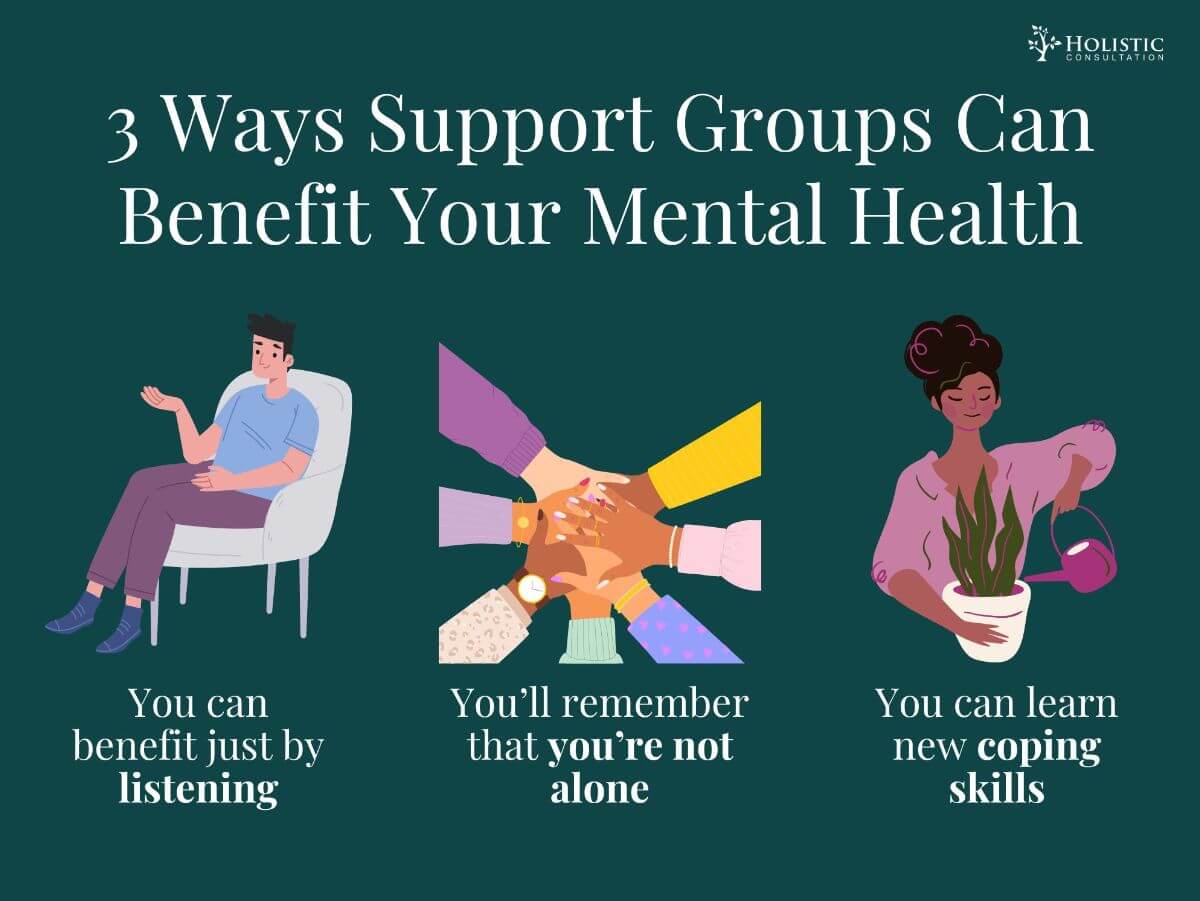How Mental Health Counseling can Save You Time, Stress, and Money.
How Mental Health Counseling can Save You Time, Stress, and Money.
Blog Article
The smart Trick of Mental Health Counseling That Nobody is Discussing
Table of ContentsGetting My Mental Health Counseling To WorkUnknown Facts About Mental Health CounselingThe Greatest Guide To Mental Health CounselingMental Health Counseling - QuestionsThe Facts About Mental Health Counseling Uncovered
Through therapy, you can get understanding right into your own patterns of habits and interaction, which can cause even more meeting and pleasing partnerships with friends, family, and romantic companions. What we assume, we show up. If you're taken in with unfavorable emotions and negative ideas that are hindering your life, therapy can aid., or there are various other unfavorable ways you act. Therapy can help you modify those actions that are having an adverse effect on your globe and connections.

Getting treatment to deal with particular elements of your life can aid you be a lot more productive in various other areas, consisting of work.

A Biased View of Mental Health Counseling
There are even more benefits of therapy than simply the ones we have actually reviewed., or build partnerships (enchanting or those with household or pals) in a healthy method.
For the function of the existing research, viewed advantages and barriers to mental health help-seeking are being explored. Previous research located that viewed barriers have a significant effect on university student' health actions options (Von Ah, Ebert, Ngamvitroj, Park & Kang, 2003). Perceived advantages and barriers to help-seeking were specifically picked because of their influence on decision-making and inevitably action (Glanz, Rimer, & Su, 2005).
Today research seeks to examine whether stigma acts as an obstacle to treatment amongst college students. Eisenberg et al. (2011) suggested that skepticism concerning treatment efficiency is one more obstacle to joining therapy. Research study searchings for exposed that university trainees recommended a number of obstacles to joining therapy. Mental Health Counseling. Among these were: (1) liking to handle psychological health issues themselves, (2) not having enough time to take part in therapy, (3) questions concerning whether mental health and wellness therapy works in remediating troubles, (4) a belief that anxiety is normal or the trouble will get far better without therapy, (5) lack of money, and (6) bother with what others would certainly think if they discovered out concerning therapy involvement.
Staff in campus mental wellness facilities might be viewed as webpage hostile, and continue reading this long wait times for services may be "repulsive" for pupils. Aspects assisting in much more positive perspectives are usually at the contrary pole of those elements identified as obstacles.
Not known Factual Statements About Mental Health Counseling
One in three (34.6%) reported surviving school and one in 4 (23.3%) reported living with moms and dads. Nearly half of pupils were associated with university organizations and 1 in 10 reported being in a society or sorority. Greater than one-third of trainees (38.1%) reported that they had a relative or close friend with a diagnosed psychological wellness disorder.

Some Known Incorrect Statements About Mental Health Counseling
Univariate F-tests determined particular subscale products that substantially differed. Women were less likely than men to regard people that most likely to counseling as psychologically weak, individuals who most likely to therapy as insane, to feel that individuals with mental illness need to take care of you can try this out issues on their own, that individuals who most likely to therapy as not able to resolve problems, that people that go to counseling are careless, and to really feel that individuals who go to therapy are various from typical people in a negative means.
Likewise, study results disclosed that females were dramatically less most likely than males to hold stigma-related attitudes. This follows previous study which also discovered that men hold higher degrees of viewed preconception than females (Chandra & Minkovitz, 2006). Based upon research findings, it is evident that men may be much less most likely than females to seek therapy as a result of low viewed obstacles along with high stigma-related attitudes.
Little Known Facts About Mental Health Counseling.
In enhancement, university wellness specialists might supply curricula targeting men with details on the advantages of psychological wellness therapy and the relevance of looking for aid when required. All methods must be examined with future research study to figure out the impact on college students, particularly males. In contrast to basic populace research studies which expose that women are most likely to look for out psychological health and wellness services contrasted to males (Haunstein et al., 2006; Mackenzie, Gekoski, & Knox, 2006), today research study found no significant distinctions in the variety of perceived barriers to help-seeking actions based upon sex.
Researchers guess that this is mostly due to typical social norms and sex functions that characterized males based upon stamina and absence of psychological expression (Addis & Mahalik, 2003; Ang, Lim, Tan, & Yau, 2004; Mojtabai, 2007). Overall, there have actually been mixed outcomes among the university student populace relating to sex differences (Rosenthal & Wilson, 2008). This searching for was unexpected and might highlight that those that had obtained counseling had a far better idea of delay times and other "gain access to" obstacles that may make it hard to begin therapy. Perhaps, individuals that have obtained counseling view extra barriers than individuals that have not gotten therapy because looking for counseling services once more could include anxiety of self-disclosing personal information to a new therapist.
Report this page